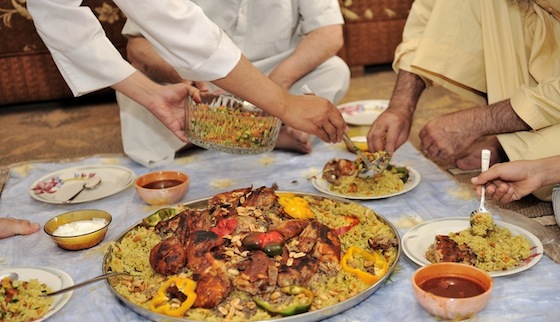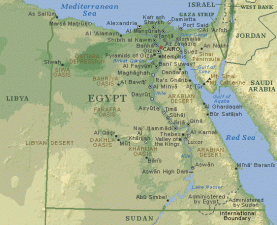
It’s counter-intuitive, but food consumption soars during the month of Ramadan fasting.
Jordanian households spent nearly $150 million on food during the first three days of Ramadan this year, according to the Jordan Chamber of Commerce (JCC). Khalil Haj Tawfiq, from the JCC food sector, told The Jordan Times that over the past few years Ramadan food consumption has been averaging over $700 million.
Iftar, the evening meal when Muslims break their day-long fast (read our Green Iftar Guide here), is best likened to America’s Thanksgiving: a splendid multi-course feast that combines religious observance with family celebration. It’s most commonly held within the home, but businesses and social organizations hold special formal iftars too, lengthy dining events offering a fabulous display of traditional foods. Whereas Thanksgiving is a one-day occurrence, Jordan’s one million households are very likely participating in an iftar celebration every night of the holy month.
Haj Tawfiq, formerly president of the Foodstuff Traders Association (FTA), points out that tens of thousands of Arab tourists who travel during Ramadan to visit family living in Kingdom add to the food demand. In addition, charitable donations of food to the poor increases this month.
This all adds up to tons of food. Really, tons.
According to Haj Tawfiq, during the holy month, Jordanians munch through approximately 15,000 tons of sugar, 12,000 tons of rice, and 20,000 tons of chicken (the birds alone are valued at $74 million).
No one’s skimping on the beef and fish: consumers stock up on over 2,000 tons of red meat and 2,000 tons of fish. Individual stats on breads, teas, juices and sweets were not detailed, but do factor into the national cash register receipt exceeding half a billion dollars.
“This year we (merchants) expect consumption to be lower than last year because the purchasing power of Jordanians is weaker,” he noted, adding that rising electricity tariffs and fuel prices have increased living costs for the majority of Jordanians. Decrease in 2012 demand is attributed to weaker purchasing power, as consumers also wrestle with high levels of unemployment.
Market demand for food products usually picks up a week ahead of Ramadan and rolls into the first few days of the fasting month, according to FTA president Samer Jawabreh. He calculated this trend as a 50% increase over non-Ramadan consumption patterns, and he agreed that the demand for food in Ramadan appears to be lower this year than last.
Despite complaints by consumers of rising food prices, the FTA insists that food prices are stable and that prices of certain commodities now cost less then last year.
It’s reported that the Kingdom’s food distributors have enough goods in store to cover the local market needs for over 120 days. I hope the clothing distributors are equally well stocked in clothing with elastic waistbands.
Image of Ramadan meal from Shutterstock



